On Friday, November 22nd, TCRH organized a great fundraiser at Fruity Yogurt! All students had to do was to visit Fruity Yogurt, show their prox, and mention TCRH. Fruity Yogurt agreed to donate 20% of profits that day to TCRH, allowing us to raise $100. Awesome! Here are pictures of the event:
Midterm Care Package Results!
TCRH’s Midterm Care Package fundraising efforts this fall were a resounding success. The initiative allowed RCA’s to order care packages for their zees to help them get through midterm week. We managed to raise $317, far exceeding our initial goals of $90-120! The event was a great way to increase campus awareness and raise money in support of improving rural health!
Meet and Greet for 2013-2014
TCRH Princeton hosted a “Meet and Greet” for new and returning members on September 29. President and VP of Operations Ryan and Edwin introduced the mission and goals of TCRH, and the VPs and Chairs of each committee presented their committee’s activities and responsibilities for new members. TCRH was also excited to have founder and director of TropicalClinics, Dr. Margaret Kilibwa, speak at the Meet and Greet about TropicalClinics’ work in Kakamega. The Meet and Greet was a great way to kick off the new year, and we can’t wait to get started with our new members!
New Leadership Team!
Princeton TCRH is excited to announce that its fall semester leadership team has been solidified by TropicalClinics Headquarters! After one semester, our first official chapter elections will be held in late January/early February. We are confident that our new leaders will improve our chaptership and help us make an even greater impact on rural health in Kenya! For a full list of our leadership team members and their bios, see the Leadership page.
Revised Chaptership Program Manual
TCRH has just released a revised version of its chaptership program manual! We are excited that several other chapterships are in their beginning stages, and we hope that these chapterships (and other chapterships in the future!) will find this manual informative and easy to navigate! Please contact one of the members of Princeton’s TCRH executive board for more information. A link to download the manual can be found below.
Communiversity Fundraising Event
TCRH’s table at Communiversity on April 28 was a great success! Members of the Fundraising Committee hosted our face-painting and informational table throughout the day, and we raised $209 for TropicalClinics and its rural health efforts!! It was an amazing opportunity to reach out to both students and members of the larger Princeton community, and to share our mission in a fun way! We hope to see everyone again at next year’s Communiversity!
Princeton Preview Activities Fair
TCRH members had the chance to share TCRH’s mission and vision with prospective Princeton students at the Princeton Preview Activities Fair on April 12 and April 23. It was exciting to meet prefrosh and tell them about our experiences with TCRH, and how they can get involved next year. We hope that the students we talked with will consider joining TCRH at Princeton — for those who talked with us at our booth and joined our mailing list, we will be in contact! If anyone did not have the chance to stop by, feel free to contact any of the officers for more information!
Here are Divya and Christene, Chair of Outreach and Publicity and VP of Chaptership Expansion, at our activities fair booth!
TropicalClinics First Annual 5K Run/Walkathon
TropicalClinics’ first annual 5K run/walkathon on April 6 was a huge success!! Thank you to everyone who participated in the 5K, and to all of the volunteers who helped make this event such a great success! More than 80 people signed up to for the event, and we raised a total of $1,444! 100% of these funds will be sent directly to TropicalClinics headquarters in Kakamega, Kenya, and will help TropicalClinics end the acute shortage of medicine, nutrients, and other essential medical services for the people of rural Kenya. Thank you again to everyone who supported TropicalClinics through the 5K!
Brownie Fundraiser a Success!
Thank you to everyone who supported TCRH by buying a brownie from our Brownie Fundraiser last Tuesday! We raised $62 for the newly-opened clinic in Kakamega and sold every brownie!! We hope that everyone enjoyed the brownies, and that our future fundraisers can also be successful with your help!
February Reflections by TCRH members
As part of our membership process, we ask all members of TCRH to submit a monthly reflection about the global health activity they attended that month, and what they learned from the event. Our February reflections were reviewed by the Rural Health Activism Committee, and five were selected to be published on the TCRH blog. These five will also be sent to TropicalClinics Headquarters, and two will be posted on the TropicalClinics website (www.tropicalclinics.org). The following five responses were selected from over forty responses that TCRH received for the month of February — thank you to all of our members for their thoughtful responses, and congratulations to the members whose responses are posted below
Kemy Lin on Embodied Histories & Health Inequalities, a Global Health Colloqium
For the month of February, I attended “Embodied Histories & Health Inequalities,” a Global Health Colloquium event held on March 1st. The talk primarily grappled with how historians and epidemiologists could reframe their thinking about global health problems. Specific case studies the speaker touched on included obesity, menstruation, and Breast cancer and how these issues could be studied over longer periods of time and statistically examined in individual racial groups. I believe that the approach advocated by the speaker could be applied toward better understanding rural health issues, specifically in terms of understanding how individual populations have been affected and identifying the long term physical and psychological repercussions of certain problems that each racial group/area population has faced. As pre-med student interested in the history of art and history of science and how these areas relate to conceptions of the human body and wellness, it was nice to see how a humanistic perspective–specifically thinking of how people conceive of health and how populations can literally “embody” the history of their health concerns–can be integrated with a quantitative scientific approach toward better understanding issues of global health and health policy. As a result of this talk, I felt a much stronger connection between my academic work in history and the arts and my work with health outreach via TCRH.
Maria Yu on Crossroads: Rural Health in America
A group of five students and I watched “Crossroads: Rural Health in America” in a classroom, then had a discussion, loosely based on the questions that Danielle Martin, a student in the Rural Health Committee here at Princeton, created. I was very interested in this specific documentary, as the idea “Rural Health” conjures images in my mind of areas is Kenya or other foreign countries, locations with a certain “cache” for being international and thus exotic. However, I never really gave too much thought about the health care discussed in the documentary, focusing on Arkansas, the Mississippi Delta, and other such agrarian towns right in the domestic United States. It was fascinating, yet quite disappointing, to learn about the lack of adequate health care and physicians and also the lack of desire to both provide and receive health care within these sparsely populated, rural areas. The fact that 470 rural hospitals closed in the past 25 years is a scary thought, as the future for health care in these poverty ridden areas looks grim if significant action is not taken. I think that transportation to get to medical appointments and hospitals is of great importance; a larger effort to provide a transportation to the civilians in these areas would definitely help some of these problems be absolved. I also think it would be fantastic to implement programs in large, multi-billion dollar, urban hospitals to send clinicians and physicians, or even young, recent medical graduate students, to these rural areas in America for a specified amount of time, not only to gain a better perspective and knowledge of the health care landscape in the US, but also to have a steady and well-educated supply of health care providers to help with the lack of health care. Being able to see the physical landscape and the people who live in rural America through this documentary made the idea of Rural Health even more solidified in my mind, exciting me to be a part of TCRH as I see all the progress that needs to be made.
Jamie Shenk on Crossroads: Rural Health in America
One of the global health activities that I attended this month was the screening of Crossroads: Rural Healthcare in America’s Mississippi Delta. The documentary focused on efforts to improve access and quality of healthcare in the rural regions of Mississippi, illustrating the struggles that come with a shortage of doctors willing to work in the area. We followed the screening with a number of discussion questions, which addressed these issues raised in the film. What struck me most about the film was how it showed issues of healthcare that I typically associated with underdeveloped countries (i.e. lack of access and transportation to healthcare and an overall shortage of doctors). It was really eye opening for me to see that those issues are prevalent in this country, and perhaps maybe we should focus more intently on addressing healthcare in the United States since instead we funnel so much of resources from donations to organizations that work abroad. One of the solutions that we debated about the unequal distribution of doctors in the US was to create stronger incentives for doctors to work in rural areas. I think that one of the reasons why this is a problem is that the premier medical institutes that I think that doctors strive to work at are almost exclusively located in major cities. By creating a healthcare center in rural area that could compete with those opportunities would provide a goal for doctors to strive for and drive doctors to work in those rural areas. Another solution may be to create programs where doctors are sent to these areas, like a domestic doctors without borders or a Teach for America type project. I think that seeing how access to healthcare is still difficult in a developed nation like the United States has furthered my commitment to TropicalClinics, as, though TropicalClinics does not serve the region filmed in the documentary, its ideals and mission is the same.
Christine Hildreth on Sinesipho: Why Must I Die
For this month my global health activity was the documentary screening “Sinesipho: Why Must I Die” about a young girl living in HIV and AIDS ridden Africa. Several aspects of this film surprised me from Sinesipho’s personal situation, the perception of the South African government, and the perceptions of prominent international leaders. As far as Sinesipho’s personal situation, I did not realize how little children new about HIV and AIDS even though it was such a major killer in Africa. While she knows it can be deadly, Sinesipho can’t truly say what HIV or AIDS is – she only really knows not to share toothbrushes. In regard to the perceptions and responses of the South African government toward AIDS, I would never have expected them to be so obstinate and associate AIDS with incomparable sources of death such as car accidents. Without the country’s own governmental support, how can HIV and AIDS be effectively combated? Finally I was shocked at how little international leaders (who had fought and worked to generate funds to combat HIV and AIDS in Africa) actually knew about what funds were reaching the African people. They did not seem to have followed up on any subsequent developments or to see where the money they had raised had gone. It seems that all of these misperceptions and miscommunications can be solved by having everyone diligently informed – from the African people and government about the reality of AIDS to world leaders about how exactly the war against AIDS is progressing. In order to combat rural health issues, communication and the informing of people on every level are both incredibly important. Seeing this documentary bolstered my commitment to TropicalClinics because it is clear that the war against AIDS needs to be a global effort – and not just for leaders and those affected.
Ryan Elliott on “Let’s Put Birth Control Back on the Agenda,” TED Talk
For February’s global health requirement, I watched a TED talk by Melinda Gates. The talk is entitled “Let’s put birth control back on the agenda” and is highly recommended. Gates argues that the world needs to make providing birth control for underserved women in developing nations an important priority. By doing so, we will be able to reduce problems such as child malnutrition and maternal mortality, while at the same time empowering women to make their own reproductive decisions . By listening to this talk, I learned about a much neglected rural health topic: family planning. In order to have healthy families, couples need access to comprehensive family planning services. This is especially important for women, who are often marginalized in many countries with a paternalistic, male-dominated cultural context. In short, women can be treated like cattle, with their main role to produce children for their husbands whenever and however often their husbands desire.I believe that a comprehensive approach to rural health care in developing nations must include providing women with access to birth control. This is an efficient way to help prevent the negative consequences which ensue when women are forced to have many children without the desire or the resources to care for them adequately. Gates mentions a useful strategy to provide women with the option of birth control without their husbands permission: the Depo-Provera shot. This shot can be given at a woman’s general check-up if she requests it and lasts for approximately 3 months. Fortunately, this method gives women a safe method to use birth control even if their husbands do not allow them to take birth control pills. This TED talk strengthened my commitment to the mission of TropicalClinics by making me realize these rural health issues are complex and multi-faceted. But I am confident that TropicalClinics can spearhead important rural health methodologies.



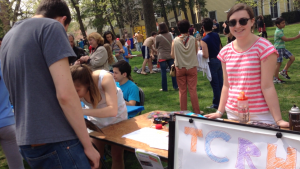
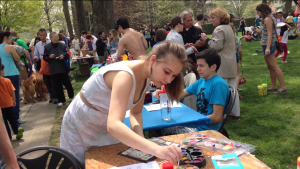
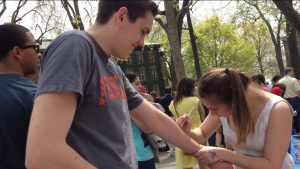
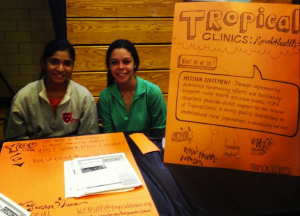

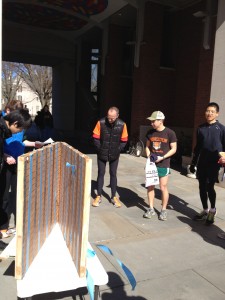
 RSS - Posts
RSS - Posts